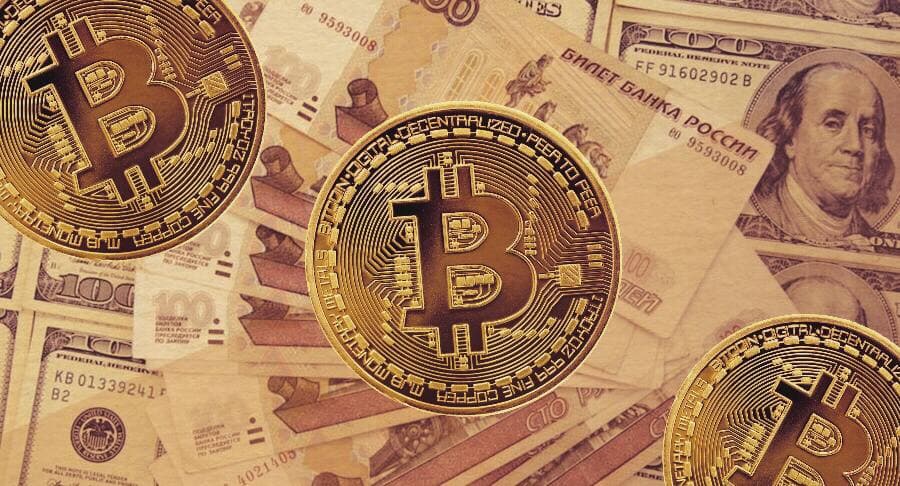Two Dozen More Online Currency Exchangers Blocked
During its monitoring of the registry of banned websites, RosKomSvoboda discovered about two dozen links to sites involved in cryptocurrency and online currency exchange operations. Some of these links include:
- https://reestr.rublacklist.net/record/3687981/
- https://reestr.rublacklist.net/record/3687956/
- https://reestr.rublacklist.net/record/3687891/
- https://reestr.rublacklist.net/record/3687723/
- https://reestr.rublacklist.net/record/3687666/
- https://reestr.rublacklist.net/record/3687580/
- https://reestr.rublacklist.net/record/3736079/
- https://reestr.rublacklist.net/record/3735831/
- https://reestr.rublacklist.net/record/3687885/
- https://reestr.rublacklist.net/record/3687577/
- https://reestr.rublacklist.net/record/3688150/
- https://reestr.rublacklist.net/record/3688126/
- https://reestr.rublacklist.net/record/3688032/
Some of these sites have already been removed from the registry—apparently, their owners decided it would be easier to delete the information that the court deemed illegal under Russian law in order to continue operating without obstacles.
However, the managing partner of DRC and head of RosKomSvoboda’s legal practice notes:
“It’s worth noting that the court decisions differ from those we’ve seen before regarding cryptocurrency sites. The page deemed illegal contains information about exchanging cryptocurrency for rubles via Sberbank Online. This method is one of the main ways many exchangers operate. This means that if a page offering BTC-to-Sberbank exchange moves to another address, Roskomnadzor will block other pages of the site as well. They have Government Decree No. 1101 for this. Therefore, the only reliable option is to appeal the court decisions and seek a complete reversal of such unjust judicial acts.”
Most of the services listed above remain blocked, and new ones are being added—several services were banned quite recently.
Details of the Court Decisions and Legal Concerns
All these resources have in common that the decisions against them were made on September 2 of this year by the Kushnarenkovsky District Court of the Republic of Bashkortostan. We reviewed most of the court decisions, which seem to be written from the same template.
In every case, the plaintiff is the prosecutor of the Kushnarenkovsky district, acting “in the interests of the Russian Federation, to protect an indefinite group of people.” The supervisory authority found that these sites contained information about the possibility of exchanging, cashing out, and transferring funds and cryptocurrency using electronic payment systems, with open access and no registration required.
The prosecutors demanded that these Bitcoin sites be added to the banned registry based on the law against money laundering and terrorist financing, which prohibits anonymous transactions equal to or exceeding 600,000 rubles or the equivalent in foreign currency. The agency refers to the relatively new law No. 208-FZ.
When the first decisions from the Kushnarenkovsky court appeared, RosKomSvoboda’s lawyers suggested that this practice could open a new loophole for banning crypto exchangers. Five of the blocked services have already contacted the Digital Rights Center to defend their rights.
“Apparently, prosecutors refuse to accept the reality that the Federal Law ‘On Digital Financial Assets’ has already been adopted, and lawmakers did not go for a total ban on cryptocurrencies, but only limited their use and civil turnover. There is still no law on the exchange of digital currencies, even though it was promised. District prosecutors are getting ahead of themselves and are clearly misinterpreting substantive law. Not to mention the obvious violations of the procedural rights of site owners, who were not even invited to the proceedings. From the mechanics, it’s clear that the list was compiled using the Bestchange aggregator. They took the first two dozen BTC-to-Sberbank exchanges (as indicated by referral links in the decisions), and the prosecutor filed a separate administrative lawsuit for each,” commented Sarkis Darbinyan.
According to the court decisions, the hearings were again held without the site owners present, which is a gross violation of their rights. Recall that back in 2018, the Supreme Court of the Russian Federation ruled that website owners must be invited to court hearings to defend their legal interests. However, as we see, the court in Bashkortostan is once again blatantly ignoring the ruling of Russia’s highest judicial authority.
RosKomSvoboda invites owners of internet services blocked by the Kushnarenkovsky court to join the fight for their rights against prosecutorial overreach, as cryptocurrencies and online financial operations are being artificially pushed out of Russia’s legal framework.
If you have been affected by illegal blocking, you can write to help@digitalrights.center. The legal experts at DRC are always ready to help.



